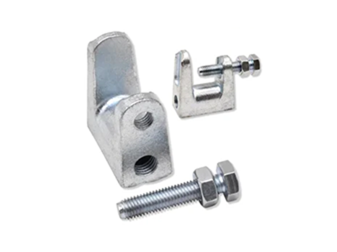11월 . 06, 2024 04:41 Back to list
Optimal Bolt Quality for Enhanced Performance and Reliability in Engineering Applications
Understanding Quality in Bolts A Deep Dive into Standards and Applications
When it comes to manufacturing and construction, the importance of quality cannot be overstated. One of the critical components in these fields is the bolt, a simple yet vital fastening device that holds countless structures together. The quality of bolts is paramount, as it directly influences the safety, durability, and overall performance of the assembled products. In this article, we will delve into what constitutes quality in bolts, the standards used to measure it, and how these factors play a crucial role in various applications.
The Importance of Quality in Bolts
Bolts are ubiquitous in almost every industry, from automotive and aerospace to construction and electronics. They are designed to hold components securely together, but if a bolt fails, the consequences can be dire. A quality bolt ensures - Structural Integrity High-quality bolts help maintain the integrity of structures like bridges and buildings, preventing catastrophic failures. - Safety In critical applications such as aerospace, the failure of a single bolt can endanger lives. Quality control is, therefore, essential. - Durability Quality materials and production processes result in longer-lasting bolts, reducing the frequency of replacements and maintenance.
What Defines Quality in Bolts?
The quality of a bolt can be measured through various factors
1. Material The choice of material is fundamental. Steel is the most common material for bolts, but the specific grade affects strength and corrosion resistance. Stainless steel offers superior corrosion resistance, while carbon steel provides high tensile strength.
2. Manufacturing Process The method of production can also influence quality. Processes like cold forging and heat treatment enhance the strength and toughness of bolts. Consistency in manufacturing practices leads to uniform quality.
3. Dimensional Accuracy Bolts must meet specific dimensional tolerances to ensure proper fit and function. Manufacturing processes that ensure precision, such as CNC machining, are crucial for achieving these standards.
4. Coating and Plating Protective coatings can enhance a bolt's resistance to corrosion and wear. Quality control in the application of these coatings is essential for maintaining performance in various environments.
5. Testing and Inspection Quality bolts undergo rigorous testing, including tensile testing, hardness testing, and non-destructive testing methods. These procedures are vital to ensure that the bolts can withstand the required loads and conditions in real-world applications.
Industry Standards and Certifications
quality bolt

To ensure that bolts meet quality expectations, various standards and certifications have been established
. Notable among them are- ASTM Standards The American Society for Testing and Materials (ASTM) provides specifications for different bolt types, including grades, materials, and mechanical properties.
- ISO Standards The International Organization for Standardization (ISO) sets global standards for bolts, ensuring reliability and consistency across borders.
- SAE Standards The Society of Automotive Engineers (SAE) maintains standards specifically for automotive applications, focusing on the mechanical performance of bolts under high-stress conditions.
Applications of Quality Bolts
Quality bolts are essential in various applications, including
- Construction In building infrastructure, quality bolts are used to secure steel structures, ensuring that they can withstand environmental stresses like wind and seismic activity.
- Automotive Industry Bolts in vehicles must endure high stresses; thus, quality is crucial for ensuring safety and performance.
- Aerospace The aerospace sector has the most stringent requirements for bolt quality due to the high-stakes nature of flight, where failure can lead to disastrous consequences.
- Manufacturing In machinery and equipment assembly, high-quality bolts are essential to maintain efficiency and reliability.
Conclusion
In conclusion, understanding the importance of quality in bolts is critical for anyone involved in manufacturing or construction. From the materials used to the manufacturing processes, every aspect contributes to the overall quality of the fastener. Adherence to industry standards and rigorous testing ensures that these small components can reliably hold together the larger structures and mechanisms that define our modern world. Investing in quality bolts is not just about compliance; it’s about ensuring safety, durability, and peace of mind.
-
The Ubiquitous Reach of DIN934 in Application Realms
NewsMay.16,2025
-
Exploring Different Bolt Types
NewsMay.16,2025
-
Cracking the Code of Sleeve Anchor Mastery
NewsMay.16,2025
-
Clamp Design Principles,Types and Innovations
NewsMay.16,2025
-
Artistry Inspired by the Humble Anchor Bolt
NewsMay.16,2025
-
A Deep Dive into Screw Types
NewsMay.16,2025


